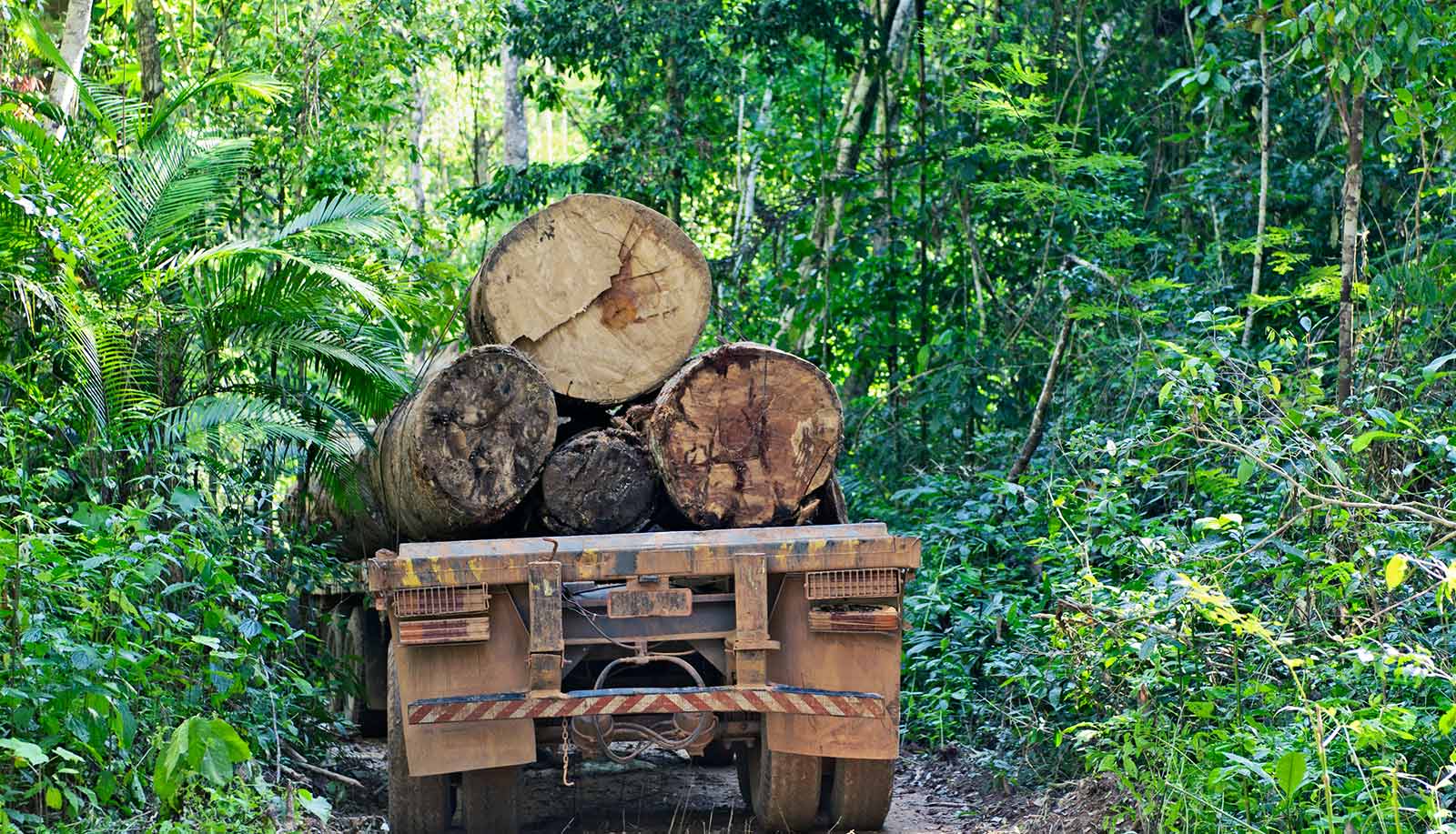Forest owners at greater risk of illegally cutting trees on their land prefer to join conservation programs that allow sustainable timber harvesting, a new study suggests.
The findings could be used to craft conservation contracts that are more likely to be accepted by forest owners and might succeed in preventing deforestation and forest degradation.
Ecuador contains approximately two percent of the Amazon basin, but hosts 44 percent of the Amazon’s bird species and enormous tree diversity. To prevent deforestation and degradation, Ecuador’s national government developed the Socio Bosque program, a conservation program that pays private forest landowners to protect their forests.
“Money has an effect, but it’s not everything,” says Francisco Aguilar, associate professor of forestry at the School of Natural Resources in the University of Missouri’s College of Agriculture, Food, and Natural Resources. “We found that among high-risk forest owners, long-term contracts that allow sustainable timber harvesting are more agreeable. On the other hand, forest owners at lower risk preferred programs that have short-term contracts and offer greater financial incentives.”
In 2016, a report by the Brazilian government found that the rate of deforestation in the Amazon had increased by 29 percent on top of a 24 percent rise the year before, indicating a rapidly accelerating pace of forest loss. Still, the rate remains lower than it had been more than a decade ago, before anti-deforestation policies were introduced. In spite of these laws, primary forests continue to be logged illegally, causing forest degradation.
The researchers administered surveys to owners and surveyed forests in Ecuador over the course of nine months. They presented participants with hypothetical contracts based on the Socio Bosque program.
Landowners preferred contracts with longer durations and allowances for controlled timber harvesting, even if those contracts offered less monetary compensation. They also preferred contracts issued by local governments or non-governmental organizations (NGO’s) compared to those issued by the Ecuadorian national government.
Do crops sometimes make deforestation worth it?
An important aspect of the study was its focus on forests at a high risk of deforestation, as owners of these forests are traditionally less likely to participate in conservation programs.
“Conservation programs often are biased toward protecting areas that are ecologically important, but have lesser economic value in alternative land use options,” says Phillip Mohebalian, who worked on the research while completing his doctorate at the University of Missouri.
“Low-risk forest owners often are more willing to receive money in exchange for enrolling their forests in conservation, because they would have conserved their forests even without the additional incentives,” he says. “We wanted to evaluate how a conservation program could reverse that bias, so we looked at the design of conservation contracts that appeal to forest owners who are most likely to cause deforestation or degradation in the future.”
Based on the results of the study, Aguilar suggests more private funding from corporations and international organizations would help ease the financial burden on the Ecuadorian government, especially since landowners often view outside organizations as more economically reliable than the central government. This likely accounts for their preference for contracts administered by NGO’s and local governments.
Deforestation drives climate change more than we thought
The study appears in the journal Land Use Policy.
Funding for the research came from the University of Missouri’s Research Board and Research Council, its School of Natural Resources, and a Dorris D. and Christine M. Brown Fellowship, as well as from the US Department of Agriculture National Needs Fellowship and the USDA International Science and Education program. The content is solely the responsibility of the authors and does not necessarily represent the official views of the funding agencies.
Source: University of Missouri



